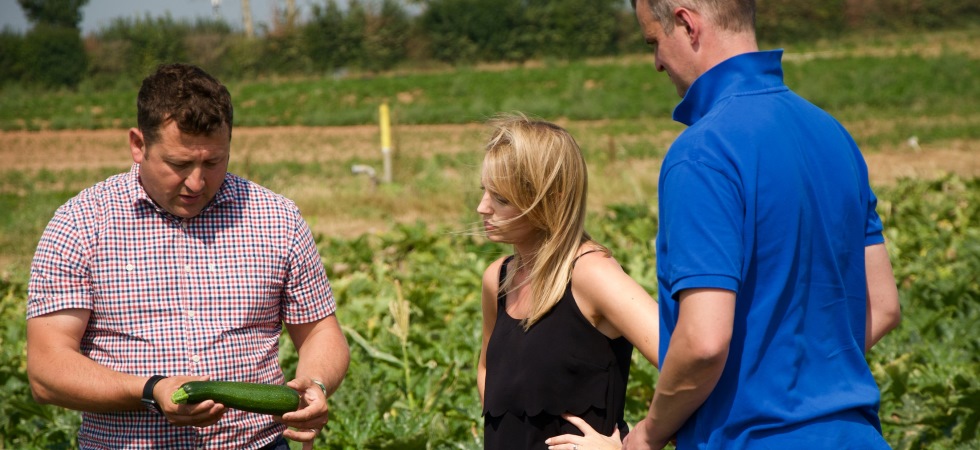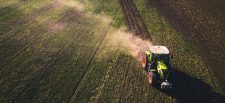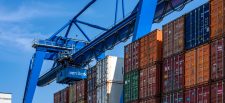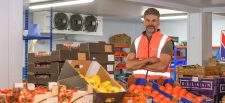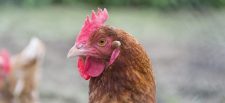A partnership between fresh produce company FerryFast and food redistributors Waste Knot and FareShare has seen more than 643 tonnes of surplus fruit and vegetables saved from waste and diverted to charities within its first year – enough to create more than 1.5 million meals for vulnerable people.
Waste Knot works to reduce food waste by linking growers – including FerryFast – and logistics providers with food service businesses which are prepared to pay for ‘wonky’ or surplus vegetables.
FareShare is a national network of 18 food redistributors which divert surplus and donated food within the UK supply chain to 11,000 charities and community groups nationwide – including food banks, homeless shelters, community centres and domestic violence refuges.
Fresh food including courgettes, melons, beans and sweetcorn have all been redistributed alongside specially made vegetable stews and salad boxes – which are particularly valuable and convenient for FareShare’s network of charities.
“Working with people who have the same drivers to adapt and to help as much as possible when faced with rapidly evolving circumstances make us prouder than ever to be a part of this partnership.”
FerryFast and Waste Knot accessed funding through FareShare’s Surplus with Purpose Fund, which enabled the two partners to divert ‘harder to reach’ surplus food at no additional cost to them.
As the Covid-19 crisis and lockdown effectively shut down the food service sector overnight, the Surplus with Purpose Fund enabled FerryFast and Waste Knot to dramatically increase volumes of food diverted to FareShare during a critical time – in turn helping the charities triple the amount of food distributed, from the equivalent of one million to three million meals each week.
The FareShare Surplus with Purpose Fund was launched last year and is funded by Defra and the Walmart Foundation. It aims to reduce food waste by offering grants of up to £50,000 to companies to help offset the additional costs incurred when redistributing surplus food to charities – saving edible food from going to anaerobic digestion or landfill.
Reaction
Lindsay Boswell, FareShare chief executive, said: “Working with FerryFast and Waste Knot has been so important in helping FareShare respond effectively to the crisis and continue delivering vital, fresh and nutritious food supplies to those most vulnerable in our communities.
“The two organisations are one of our biggest fresh fruit and vegetables suppliers and partnered with FareShare at a crucial time – their support has contributed to our ability to triple the amount of food delivered to our network of 11,000 charities each week.
“Unfortunately as we continue to navigate the pandemic and a recession the reality is that demand for food is likely to remain at crisis levels for some time. Using the Surplus with Purpose Fund we will continue to work tirelessly to unlock thousands more tonnes of surplus food and ensure it gets onto the plates of those who need it most – and we urge suppliers to get in touch.”
Pete Osborne, managing director at FerryFast, said: “The impact of Covid -19 has been immense on our country. Unemployment is growing daily and with it poverty numbers will increase. We are passionate about supporting the great work done by FareShare and are very proud that we have help provide the equivalent of 1.5 million meals of fresh surplus produce that ordinarily may have been used for animal feed or anaerobic digestion.”
Jess Latchford, director at Waste Knot, said: “Being able to make such a difference, and to see it in tangible terms, in a time of crisis has embedded the importance of what we do for us at Waste Knot. Working with people who have the same drivers to adapt and to help as much as possible when faced with rapidly evolving circumstances make us prouder than ever to be a part of this partnership.”
The FareShare Surplus with Purpose Fund is open to new companies, as well as companies which already work with FareShare and are seeking to redistribute additional surplus food items. It can cover packaging and transportation costs, or lost income from the sale of surplus to animal feed or anaerobic digestion. It could also be used to cover the additional staff costs needed for packing and sorting edible surplus food, or in building, implementing and managing new processes.

